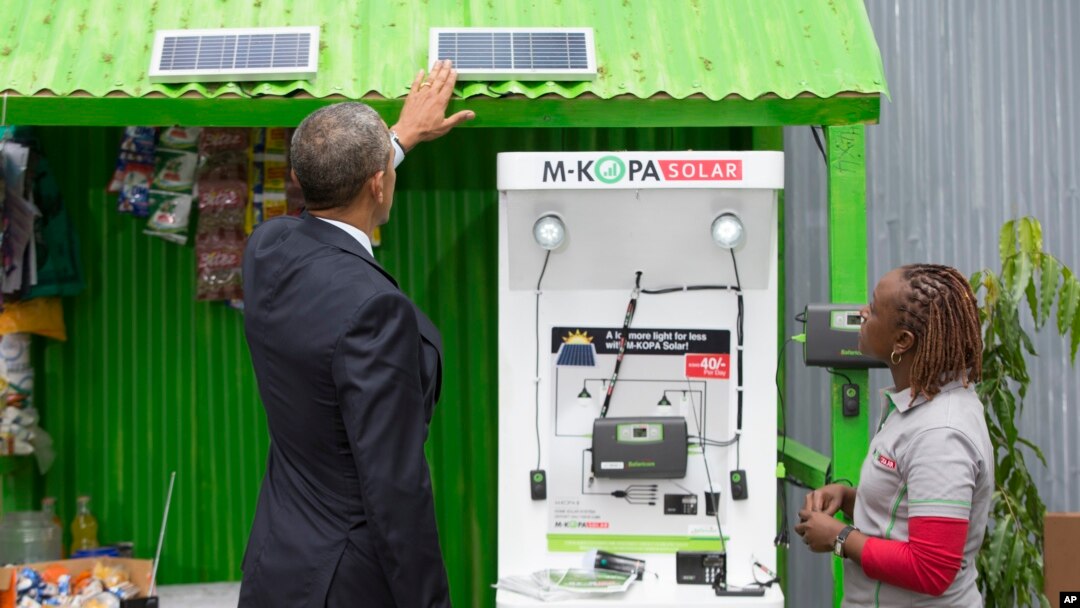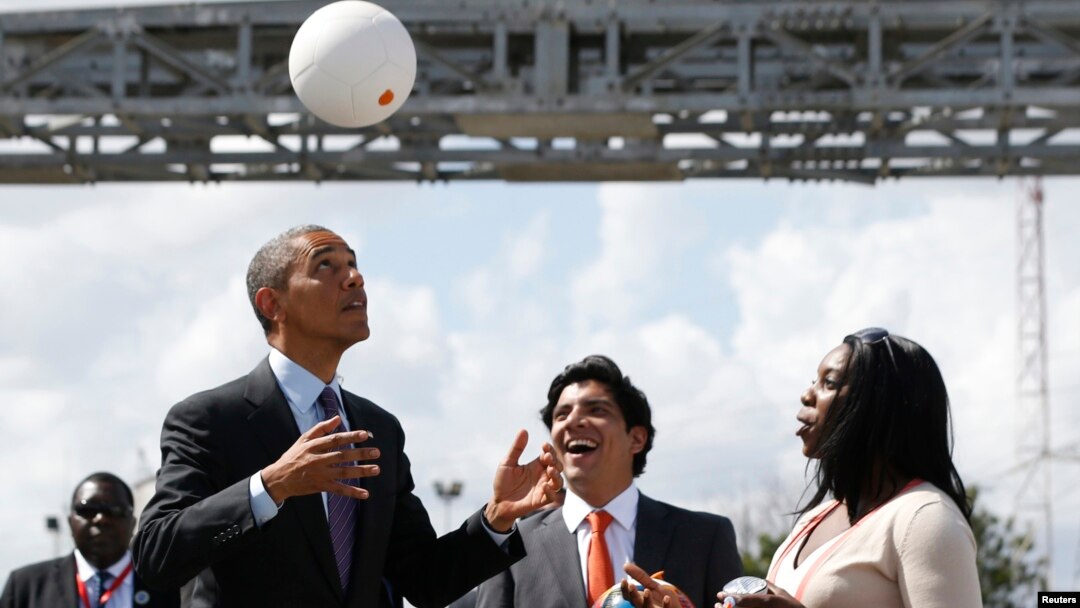Recent U.S. presidents have tried to leave a legacy in Africa in the form of a signature policy achievement.
For Bill Clinton it was the Africa Growth and Opportunity Act (AGOA) that opened U.S. markets to certain African exports. For George W. Bush it was the President’s Emergency Plan for AIDS Relief (PEPFAR) that poured billions of dollars into AIDS research and treatment.
Barack Obama decided the thing most holding back African development was access to electricity.
“Access to electricity is fundamental to opportunity in this age,” he said in a speech in Cape Town in 2013. “It’s the light that children study by, the energy that allows an idea to be transformed into a real business. It’s the lifeline for families to meet their most basic needs, and it’s the connection that’s needed to plug Africa into the grid of the global economy.”
Fueled by a $7 billion U.S. investment, the Power Africa initiative aims to add more than 30,000 megawatts of electricity generation capacity and 60 million new electric connections for the continent’s homes and businesses.
The project, which relies heavily on the private sector, is one of several reasons observers believe Obama has helped change the narrative on Africa.
From aid to trade
“His biggest single legacy has been, I think, to move the debate and focus on Africa away from aid to more about trade. That has been particularly his focus during the second term,” said Alex Vines, head of the Africa Program at London-based Chatham House. “Looking at the continent of Africa more as a continent of opportunities rather than of humanitarianism, terrorism and disaster.”

FILE - President Barack Obama looks at a solar power exhibit during a tour of the Power Africa Innovation Fair, Saturday, July 25, 2015, in Nairobi, Kenya. In Nigeria, Lumos Global is among the firms rolling out solar power technology.
The Obama administration also sought to build relationships with the next generation of African leaders through the Young African Leaders Initiative and with current heads of state by holding the U.S.-Africa Leaders Summit in 2014, a first of its kind event that drew 50 African leaders to Washington.
The United States continues to far outpace the rest of the world in terms of traditional aid to Africa. It pays nearly $9 billion per year in development aid to the continent. Britain, the next biggest donor, pays just more than $3 billion per year.
But even in the arena of traditional aid, Obama took an approach that offered a hand up instead of a hand out. For example, the Feed the Future initiative launched in 2010 veers away from traditional food aid by assisting farmers with locally adapted technologies and helping to avoid price shocks.
“This is a really important dynamic and finally it takes the U.S. away from the more traditional donor-recipient relationship that really defined the post-Cold War era to one where the U.S. is seeking mutual benefit with African governments and others on the continent,” said Witney Schneidman, senior international adviser for Africa at Covington & Burling LLP and nonresident fellow at the Brookings Institution.
Future under Trump
As with many things, President-elect Donald Trump’s views on aid to Africa are complicated. As a candidate in the Republican primaries, one of Trump’s applause lines was a pledge to “stop sending aid money to countries that hate us.”
But during an April 2016 speech on foreign policy he appeared to embrace the U.S. role as a donor saying, “We are a humanitarian nation.”
Observers have speculated that, because of the isolationist thrust of his worldview, Trump is likely to be less interested in aiding Africa than his predecessors.
FILE - President-elect Donald Trump, left, accompanied by Trump Chief of Staff Reince Priebus, right, and Retired Gen. Michael Flynn, a senior adviser to Trump, center, speaks to members of the media at Mar-a-Lago, in Palm Beach, Florida, Dec. 21, 2016.
But others feel that there will not be a major break with Obama’s policies there.
“Some [programs] will fall away, I suppose, under the new incoming Trump administration when it’s in place, others will continue,” Vines said. “My own reading is I don’t think there would be a massive difference between an Obama administration in how it looks at particularly sub-Saharan Africa and the Trump administration and how it looks at sub-Saharan Africa.”
Finally, don’t rule out a major shift in Trump’s perception of Africa. Schneidman pointed out that presidents Clinton and Bush came to the Oval Office with virtually no experience in Africa, but left positive legacies.
“We just don’t know what a president Trump will do on the continent,” Schneidman said. “I think we have to approach it with an open mind, and I think we have to put forward a number of ideas where he could carve out his own legacy.”


